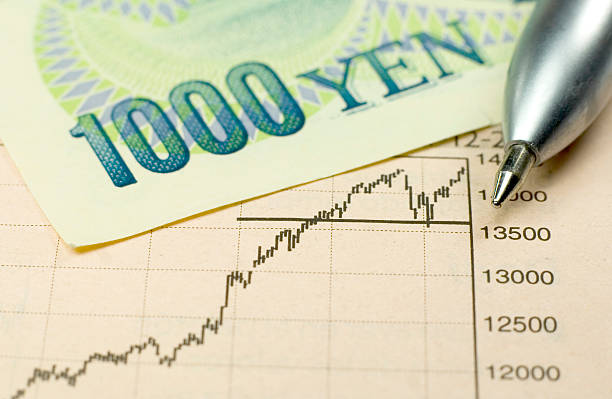The US Treasury told the Bank of Japan to raise interest rates to fix the weak yen

The US Treasury Department has told the Bank of Japan to keep hiking interest rates, saying it’s the only way to stop the yen from staying weak and to fix the trade imbalance between both countries.
This warning came in the department’s latest foreign-exchange report to Congress, released on Thursday. The Treasury said the BOJ should respond to what’s happening inside Japan’s economy—mainly growth and inflation—and use that to guide rate hikes.
They said this would “support a normalization of the yen’s weakness against the dollar and a much-needed structural rebalancing of bilateral trade.” That means Washington wants a stronger yen to cut the trade deficit and level the playing field for American exporters.
Treasury points at pension funds and BOJ’s slow pace
Besides interest rates, the Treasury also called out Japan’s massive pension funds, saying they shouldn’t invest abroad to try and affect the exchange rate. “Treasury also stresses that government investment vehicles, such as large public pension funds, should invest abroad for risk-adjusted return and diversification purposes, and not to target the exchange rate for competitive purposes,” the report said.
The US has rarely made this kind of direct comment on Japan’s monetary policy, but the weak yen has stayed on Washington’s radar for years. It gives Japanese exporters an advantage. Ultra-low interest rates, according to US officials, are part of what’s been keeping the yen stuck at depressed levels.
When asked about the US remarks on Friday, Finance Minister Katsunobu Kato said the government does not interfere with the BOJ’s decisions. “Based on this, we would like to refrain from making comments (on what was pointed out in the report),” Kato said during his regular press briefing. On pension funds, he added it’s “natural” that they manage their portfolios based on their own goals.
While the Treasury stopped short of naming any country a currency manipulator in 2024, it did say it would continue monitoring Japan along with China, South Korea, Taiwan, Singapore, Vietnam, Germany, Ireland, and Switzerland. These countries now face more attention from the US for how they manage foreign exchange policies.
BOJ lags on rate hikes as trump threatens bigger retaliation
The BOJ officially ended its ultra-loose stimulus last year and finally raised its short-term interest rate to 0.5% in January. That came after signs that Japan might hit its 2% inflation goal. But higher US tariffs have started to weigh on growth, and the BOJ cut its economic forecast in May. Even with that early hike, the BOJ has held off on further moves, making markets think the yen will stay weak.
A Reuters poll taken between May 7 and 13 showed most economists don’t expect another hike until late 2024, if it even happens at all. Some believe the BOJ may take action by year-end, but that’s far from guaranteed.
The Treasury’s latest report is the first full foreign exchange review since Donald Trump returned to the White House. While the report didn’t accuse any country of outright manipulation, it did put China on blast for what it called “its lack of transparency.”
Treasury Secretary Scott Bessent said in a statement, “The Trump Administration has put our trading partners on notice that macroeconomic policies that incentivize an unbalanced trading relationship with the United States will no longer be accepted.”
Scott added that Washington will “continue to strengthen our analysis of currency practices and increase the consequences of any manipulation designation.”
During his first term, Trump often went after countries like China and Japan for what he saw as unfair trade practices driven by undervalued currencies. So far, though, his approach has mostly been through tariffs.
Even though the Biden administration had seven countries on the monitoring list back in its final November report, Trump’s Treasury has now added Ireland and Switzerland, expanding the group to nine.
Under a law passed in 2015, any country that meets two out of three benchmarks related to trade and currency gets flagged for monitoring. That’s how Japan, China, Korea, Taiwan, Singapore, Vietnam, Germany, Ireland, and Switzerland all landed on the current list.
* The content presented above, whether from a third party or not, is considered as general advice only. This article should not be construed as containing investment advice, investment recommendations, an offer of or solicitation for any transactions in financial instruments.

